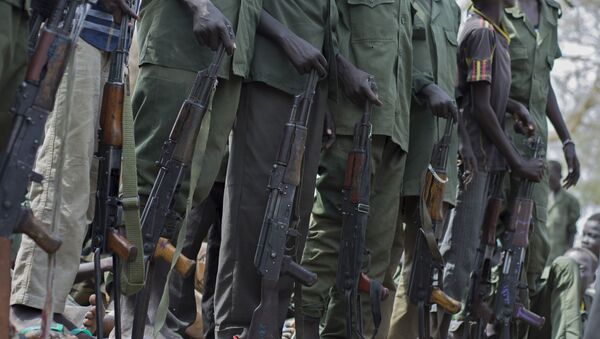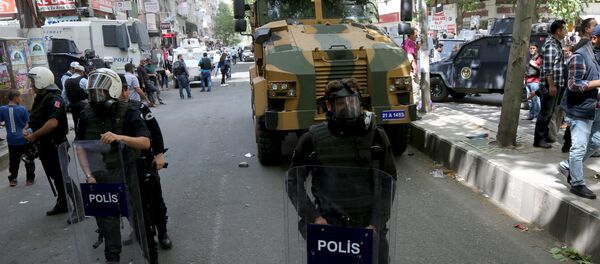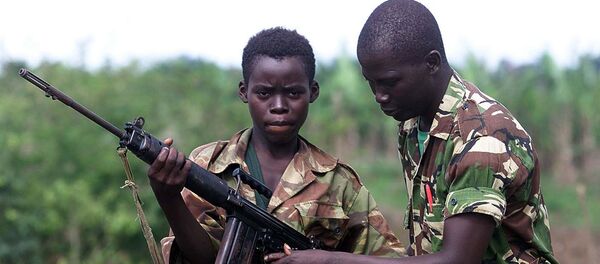Germany has been viewed as the world's largest small arms exporter for years. According to the study, which is based on a report by the UN Secretariat, small arms worth 800 million euros have been exported from Germany to other countries over the past 15 years.
Arms exports brought German companies profits of 6.88 billion euro in 2016, and one billion more in 2015.
"Instead of introducing stricter arms export control, Sigmar allowed small arms exports to rise by 47%, up to 47 million euro in 2016," Frank Mischo, children's rights expert and member of the Alliance, told Handelsblatt newspaper.
According to the expert, more than one third of such small arms, such as Walther P99 or Sig Sauer SP 2022 pistols, as well as G3 rifles, were exported to third countries involved in armed conflicts. Often, these arms end up in the hands of children who are used as child soldiers by various rebel groups.
"This practice strongly contradicts the announcements made by the Federal Government and puts economic and security policy over children's rights violations," Mischo said.
According to the Human Rights Watch Report, child recruitment has been frequently practiced by many Syrian rebel factions, including the al-Nusra Front and Daesh. Children are often used as combatants and sex slaves, as they represent a vulnerable social group, which can be easily convinced and manipulated.
Nowadays, about 250,000 child soldiers are being forced to participate in the fighting in at least 20 countries worldwide. Many of these countries, including the Middle Eastern states, India, Pakistan and the Philippines, are armed with German weapons. The sale of weapons to conflict zones is actually prohibited, but the absence of a strict control system makes it possible to pass over the regulations.
The German Defense Ministry said it is committed to the "proper verification of supplied weapons," and their use in accordance with international law. However, since the Ministry is unable to trace individual arms, "the sale of individual weapons cannot be excluded with absolute certainty," German politician Tobias Pfluger told Sputnik.




